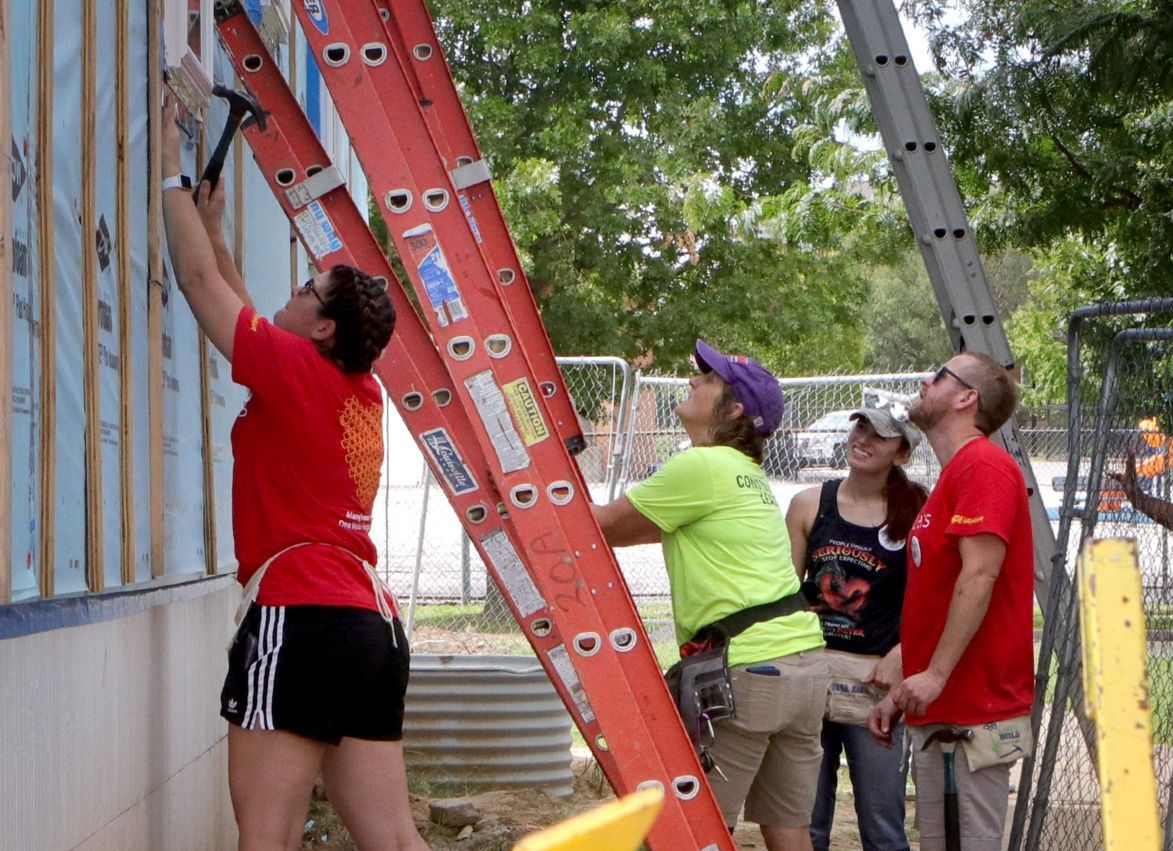From the St. Louis Post-Dispatch

By Janelle O’Dea

ST. LOUIS — The city’s Affordable Housing Commission has selected 54 organizations this year to receive a total of $6 million in funding. The commission awards projects at its annual ceremony, which was on Jan. 6 this year.
The vast majority, or 48 of them, are community programs run by organizations like Better Family Life, the St. Patrick’s Center and United Way. The other six are housing developments, up from three last year.
St. Louis Mayor Lyda Krewson increased the commission’s funding by $1 million from last year. It is the first time in more than a decade that the trust fund has been able to award more than $5 million in projects, according to a release from her office.
Gary Newcomer, director of operations at the Community Builders Network of Metro St. Louis, said he’s excited about the innovative approach to affordable housing taken by applicants this year, such as the Dutchtown South Community Corp.
The group applied for funding and received $20,000 to provide residents with information about tenants’ rights and organizing.
Another program Newcomer mentioned is DeSales Community Development’s “Here To Stay” eviction prevention program. Four years ago, St. Louis averaged about nine evictions per day, according to the Eviction Lab project at Princeton University.
With working class incomes flatlining and the percentage of severely rent-burdened families continuing to rise, according to The Pew Charitable Trusts, a single eviction can put those families behind by thousands of dollars. Evictions can cause loss of possessions and employment, and contribute to a feeling of instability, particularly if children have to move schools.
The “Here To Stay” program tries to intercept residents as soon as they start to fall behind on rent, said Mike Ziegler, community services manager for DeSales. Tenants are placed in a three-month program where they’ll meet with financial coaches and social services representatives. Tenants still pay monthly rent during those three months.
Meanwhile, their back rent balance will be put into forbearance. At the end of the three months, tenants enter a payment plan for the back rent.
“Then at the end of that three-month program, they are better positioned to take on the payment plan and prevent eviction going forward,” Ziegler said.
The Gateway Neighborhood Mortgage, a loan product designed to kick-start the credit market in distressed north St. Louis neighborhoods, also received $59,800, through the Justine Petersen Housing and Reinvestment Corp., for down payment and closing cost assistance.
That money should provide for about 20 mortgages, said Justine Petersen spokesman Galen Gondolfi. The project is a combined effort of banks, nonprofits and government. They hope to begin closing on mortgages in the first quarter of this year.
Justine Petersen also received $58,650 for home repairs. Up to 10 homeowners will be able to use up to $5,000 to address health and safety issues identified by St. Louis city building inspectors. A competitive bidding process, with pre-qualified contractors, will ensue. The funds are a five-year forgivable, meaning if residents stay in their homes for five years after the work is done, they will not be required to pay any money back. If they move before the five years is up, the money will be prorated at a $160 payback per month, Gondolfi said.
The three areas receiving the most funding are building new or rehabbing old housing, at almost $2 million; combating St. Louis’ homelessness problem, $1.45 million; and transitional housing, $1.09 million.
Habitat for Humanity is receiving the most funding, at just over $682,000 total.
Newcomer hopes to see the funding increase momentum continue into next year.
“We know from the Metropolitan St. Louis Equal Housing and Opportunity Council that rent is rising faster in the city than anywhere else in the region, so we see this as a growing need,” Newcomer said.
Editor’s note: This story has been corrected to reflect the author of research by The Pew Charitable Trusts.
![]()

